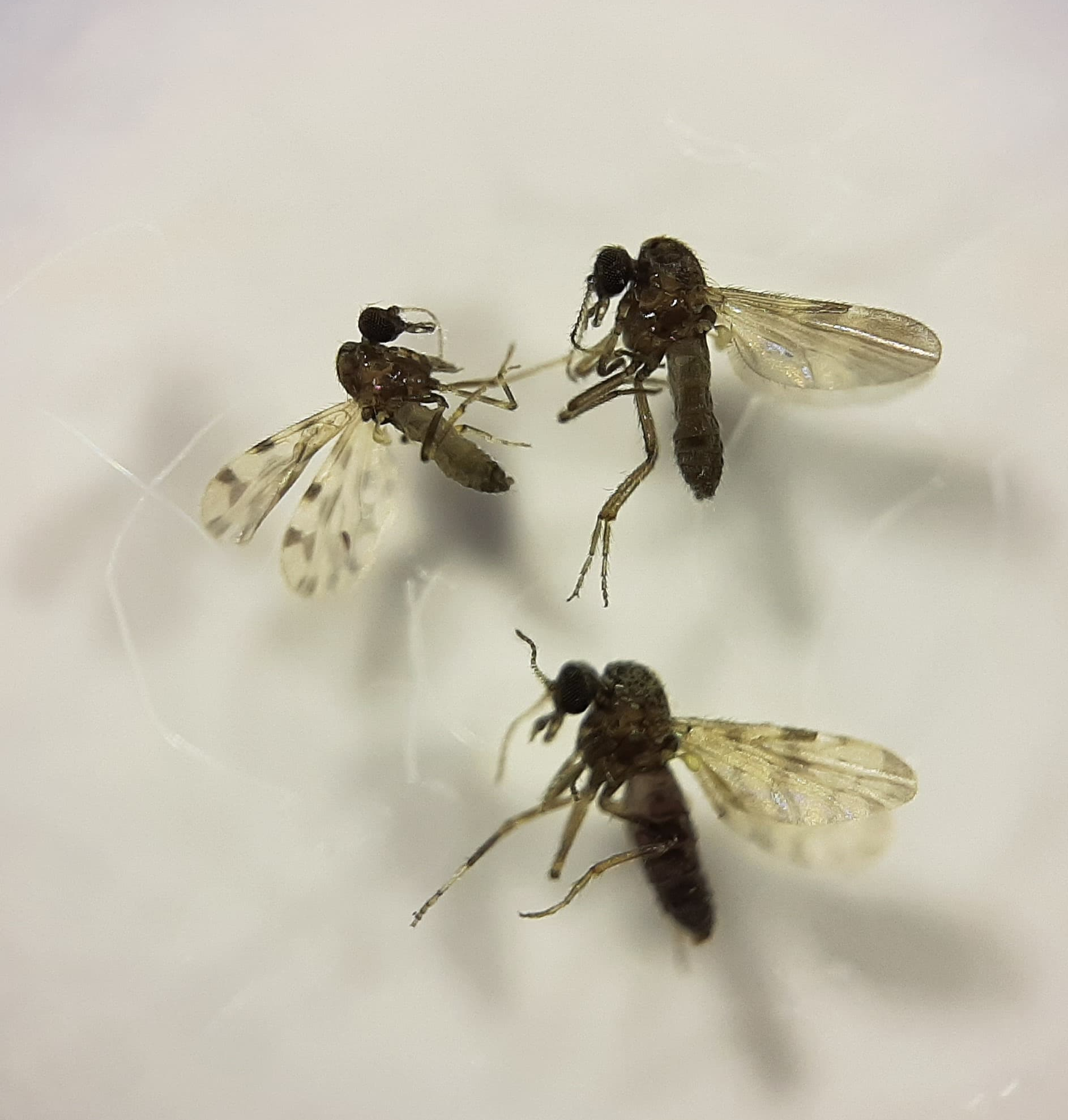An exhaustive review highlights the role of Culicoides in the transmission of parasites affecting wild birds in Europe
Researchers recommend conducting experimental studies and specific anal-yses to deepen the knowledge of these vectors of parasites, which may im-pact bird survival and reproduction.

An international team of scientists has published an exhaustive review on the understudied role of Culicoides, commonly known as “jejens”, in the transmission of blood parasites affecting wild birds in Europe. The study, which includes the participation of the Doñana Biological Station (EBD-CSIC), has been published in the journal Parasites & Vectors.
Although Culicoides are widely known for transmitting significant viruses to livestock, such as bluetongue, and to humans, such as the Oropouche virus, their role as vectors of parasites affecting birds has received far less attention. These include blood parasites similar to those that cause avian malary, such as Haemoproteus, as well as others like Trypanosoma. Such parasites can be harmful from the early stages of a bird’s development, impacting their survival, reproduction and behaviour.
This work has been conducted within the framework of the European COST Action WIMANET (Wildlife Malaria Network), which focuses on the study of malaria parasites affecting wildlife. It involves researchers from several European and American institutions.
The lack of experimental studies and specific analyses
The study provides an in-depth analysis of sampling methods, molecular techniques for parasite detection, host identification, and vector competence experiments used to investigate the interactions between Culicoides, birds and parasites.
“Besides systematizing existing information, this review identifies major gaps in our understanding of this system: we lack experimental studies demonstrating the effective transmission of these parasites, and we still largely don’t know which Culicoides species transmit Haemoproteus and Trypanosoma in wild birds”, says Dr. Jesús Veiga, a researcher at the Doñana Biological Station and coauthor of the study.
The authors propose future research lines, including parasite transmission experiments, and targeted analyses of different vector species, to enhance our understanding of the life cycle and ecological significance of these parasites. “This work highlights the need of broaden the study of bird parasite vectors beyond the traditionally studied groups, such as mosquitoes”, says Dr. Josué Martínez de la Puente, a researcher at the Doñana Biological Station and senior author of the study.
In addition, “a deep understanding of the interactions between parasites and vectors, like Culicoides, is essential to conserve biodiversity and anticipate potential changes related to climate and vector distribution”, says Dr. Martina Ferraguti, a researcher at the Doñana Biological Station, who is also participating in the study.
This study provides a renewed perspective on Culicoides as key players in the ecology of bird diseases and advocates for their priority inclusion in future research programmes.
Referencia
Chagas et al. 2025. A literature review on the role of Culicoides in the transmission of avian blood parasites in Europe. Parasites & Vectors. https://doi.org/10.1186/s13071-025-06957-y